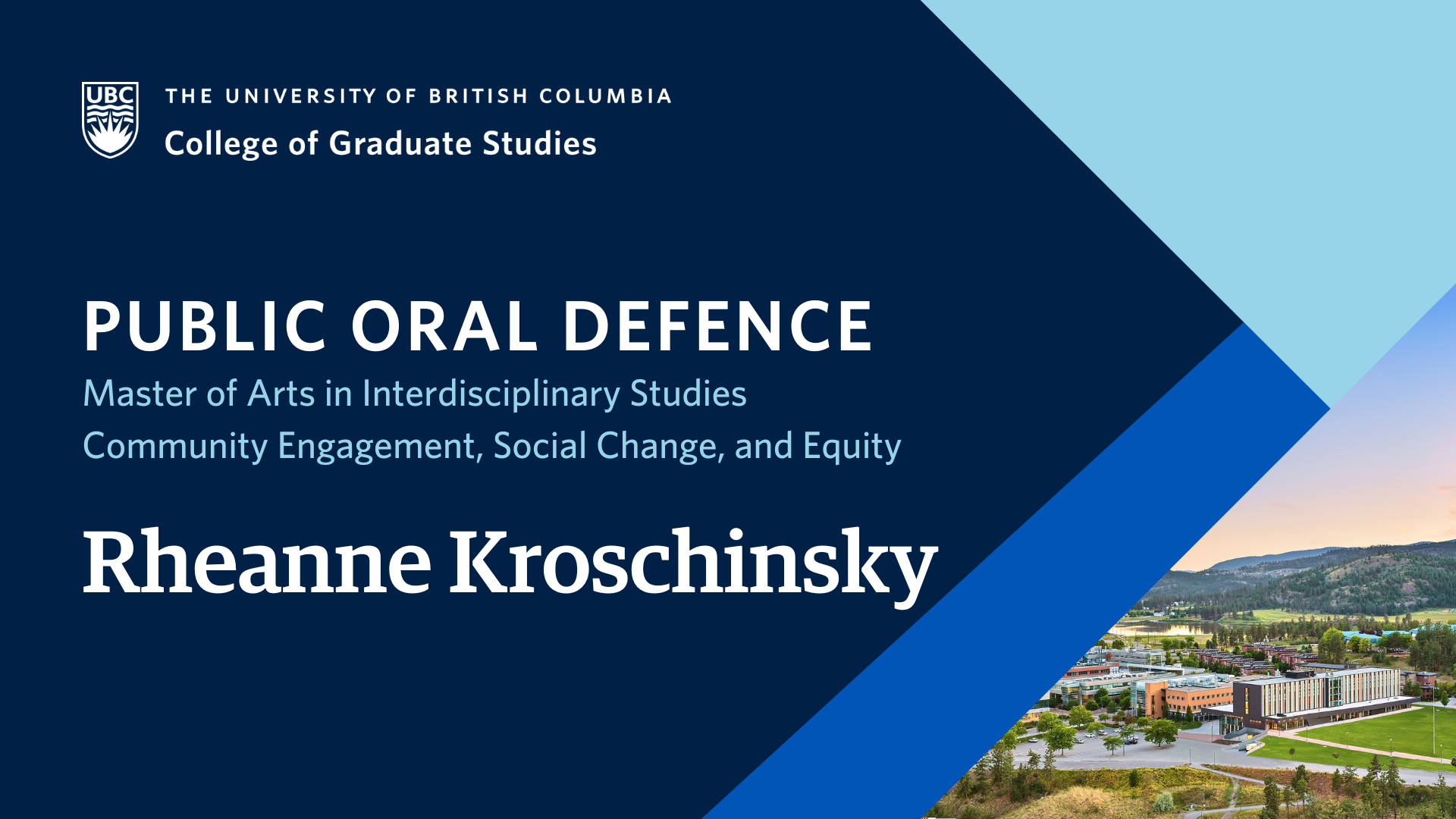
- This event has passed.
Thesis Defence: Watershed Ecosystems and Human Interconnections: A New Model for Governance in Peachland Creek, B.C.
July 31, 2023 at 10:00 am - 1:00 pm

Rheanne Kroschinsky, supervised by Dr. John Wagner, will defend their thesis titled “Watershed Ecosystems and Human Interconnections: A New Model for Governance in Peachland Creek, B.C.” in partial fulfillment of the requirements for the degree of Master of Arts in Interdisciplinary Studies.
An abstract for Rheanne Kroschinsky’s thesis is included below.
Defences are open to all members of the campus community as well as the general public. Registration is not required for in person defences.
ABSTRACT
The Peachland Creek watershed within unceded Syilx territory in the Okanagan Valley of British Columbia serves as a prime case study of the challenges faced by many multi-use provincial community watersheds in British Columbia. These challenges include the need for recognition of unrelinquished Syilx rights and title, and management of the cumulative impacts of a changing climate, rapid population growth, tourism, recreational use, ranching, and logging on water quality and the environment. Reflective of a diverse variety of anthropogenic influences, Peachland Creek is governed by a complex jurisdictional and regulatory landscape involving all levels of government (First Nations, municipal, provincial, federal) and their respective agencies. In this light, it stands out as an ideal watershed in which to apply an integrated watershed resource management (IWRM)-based approach, encompassing the above characteristics and distinctive water relationships in a collaborative and inclusive governance framework. Towards this goal, this thesis provides an in-depth examination of the historical and modern socio-ecological context of the Peachland Creek watershed, based on an extensive series of interviews with the local settler population, observational studies in the watershed, and analysis of the legislative, regulatory and policy frameworks guiding decision-making. This research constitutes one component of a larger collaborative, community-engaged study, the Watershed Ecosystems Project (WEP), and incorporates the Syilx perspectives and knowledge contributed by Syilx researchers and communities to that study. This thesis concludes with recommendations for a more appropriate governance model and reflections on the WEP itself as an innovative academic-community partnership model in water governance.